A lot of posts on exercise, but not much on eating.
And while eating tastes may vary, there is one commonality that does not depend on the type or amount of food that you consume.
The way that you eat.
Which is typically – at the desk, or ‘on the go’, or immersed in the phone, or speaking with someone.
I think we have forgotten how to eat without any sort of distraction.
And so, like any other habit, we have to re-train ourselves. Probably the most important training yet!
Rediscovering Eating
Difficulty level – 2 (moderately difficult)
Time commitment : 15 minutes per day – week 1, 30 minutes per day – week 2, 45 minutes per day – week 3
You know that things are bad, when someone has to remind us how to eat.
When we were kids, we were accustomed to hearing our mothers saying -pay attention to your food, don’t shake your legs while eating, stop reading (or watching the TV), finish your meal…we mostly complied, not because we wanted to, but because we didn’t have any choice. The situation changed once we grew up – we are now our own masters, and so we have lunch at our work desks, with our eyes on the screen, possibly typing an email in between. Home is not very different – we are buried in our screens while chomping down whatever is put in front of us…
This exercise will help you rediscover the ‘ancient art’ of eating.
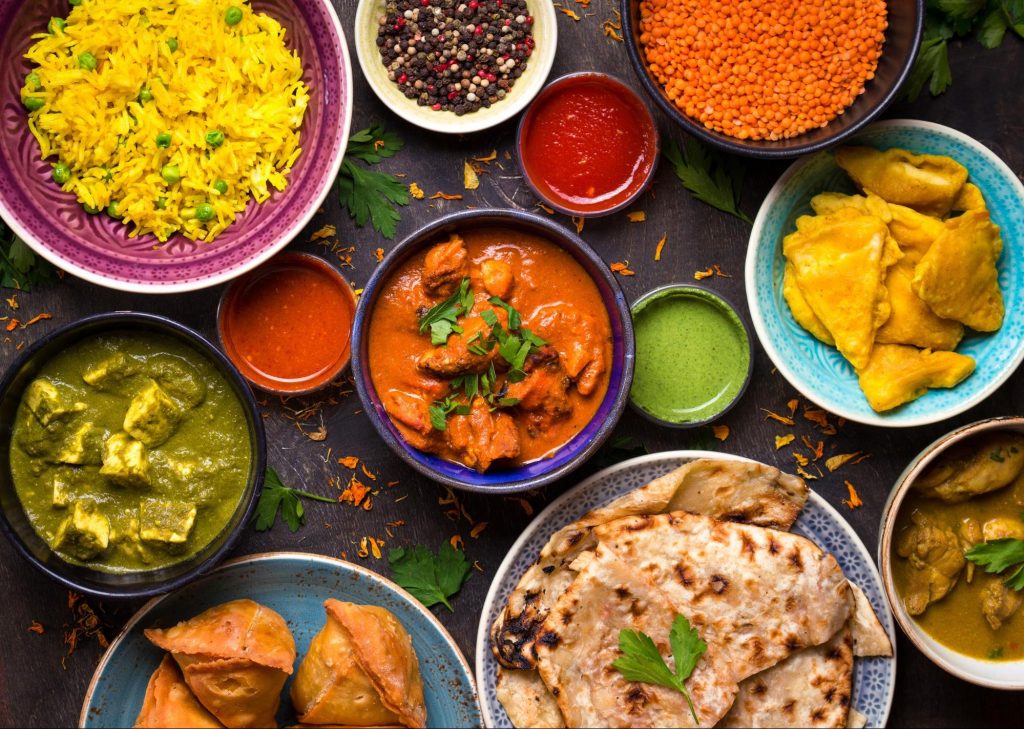
A few points to note:
- Consistency – Have your meals at the same time everyday. Ideally breakfast at 8 am, lunch at 1 and dinner at 7.30 pm. You can modify these timings a bit, but your last meal of the day should be at least three hours before bedtime.
- No processed food – We have a separate exercise coming up, on healthy eating. For now, avoid heavily processed foods (sausage meats, canned items, frozen poultry), and try to do this exercise with fresh home-cooked food, as much as possible.
- Smaller portions – A trick to ensure this, is eating in smaller plates.
- Involve your family – Mealtimes should be family–time. Especially during lockdowns, when there is no alternative. Try to involve them in the exercise as well.
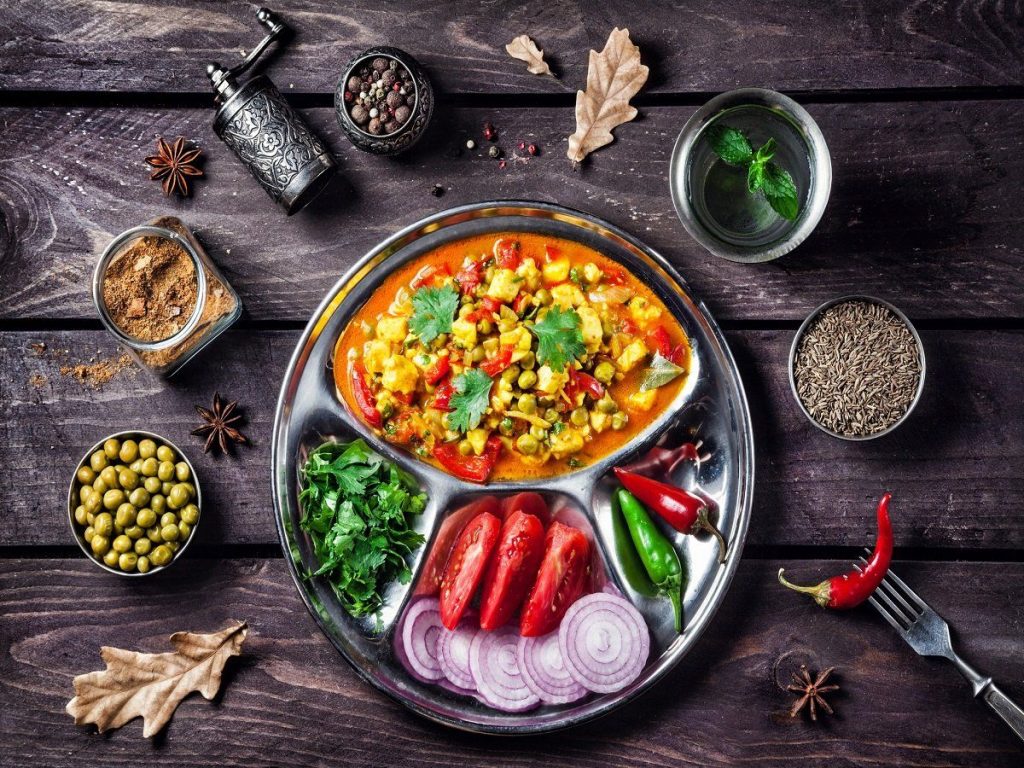
How you do it
Sanitise the area
No, this doesn’t involve you spraying sanitiser all over the table. Sanitise – rid the table of everything electronic, no phones, computers or tablets in the vicinity (not even on mute or face down). TV – off. No books as replacements. And no talk.
Be thankful
Sit at the table when the food is served, join your palms together in Anjali Mudra (namaste), close your eyes, and say a small prayer. Feel genuinely thankful for the food you have in front of you – in tough times, many people don’t even get a decent meal. If you are religious, you can say Grace (if Christian) or a prayer according to the religion you follow. if not, you can try the gratitude exercise that I spoke about earlier.
Observe your plate
Open your eyes, and take two minutes to observe what is on your plate. Use your senses – smell your food and take in the various aromas that percolate around the plate, feel your belly growl in anticipation, see the colors, the texture…take your time to connect.
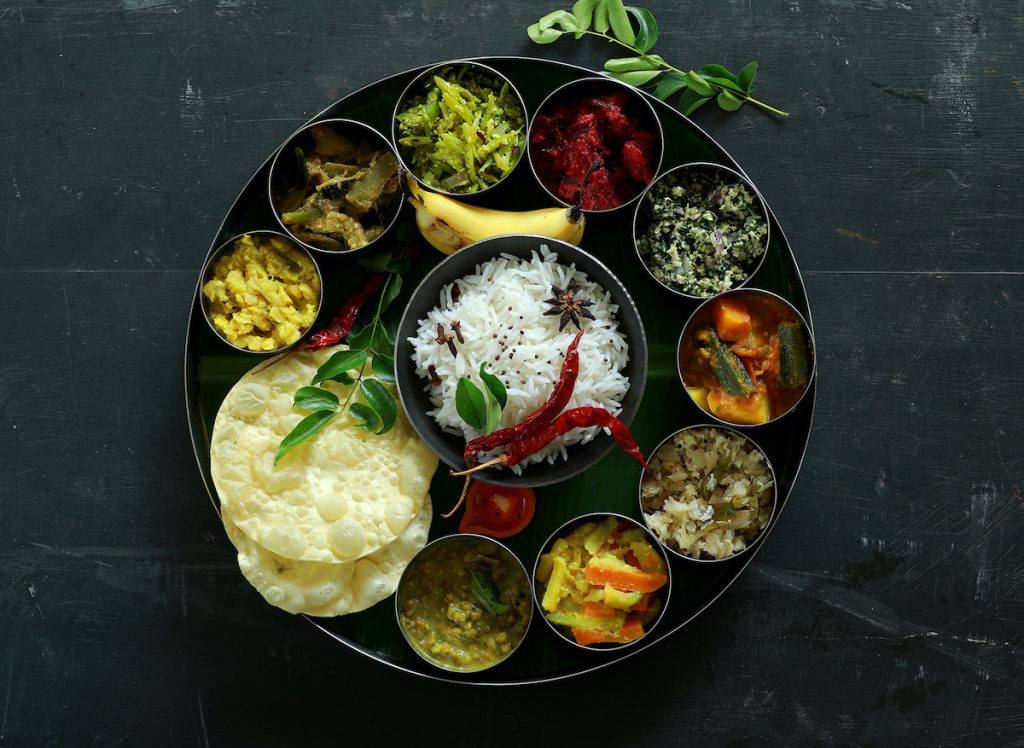
Your first bites
In India, we usually eat with our hands –
touching your food is very important, it builds a connection between your hands, your mind and the food that is about to be ingested.
So try (whenever possible) to eat with your hands. Take the first bites, chew slowly, let the food move into all corners of your mouth and mix well with the saliva (50% of digestion happens in the mouth). Sense the explosion of taste on your tongue – try to identify the flavours as you chew.
32 bites
Well, chewing a mouthful of food anywhere between 20 and 40 times is ideal (I just arrived at an arbitrary figure of 32). Let the food mix thoroughly, until it is almost liquid. Thoroughly masticate the food, and then let it go down. Take the next mouthful only after the first has gone down.
Drink your food, and chew your water…

Stop when 3/4th full
Your stomach is a bit slow in sending signals to your brain, so involve in the process to know when you are getting full. If you feel about 3/4th full, stop eating. Don’t drink water yet – wait for 20-30 minutes before taking a glass of water.
Thats it!
Start with one meal a day in this manner, for week 1, progress to two meals a day in week 2, and all meals a day in week 3.
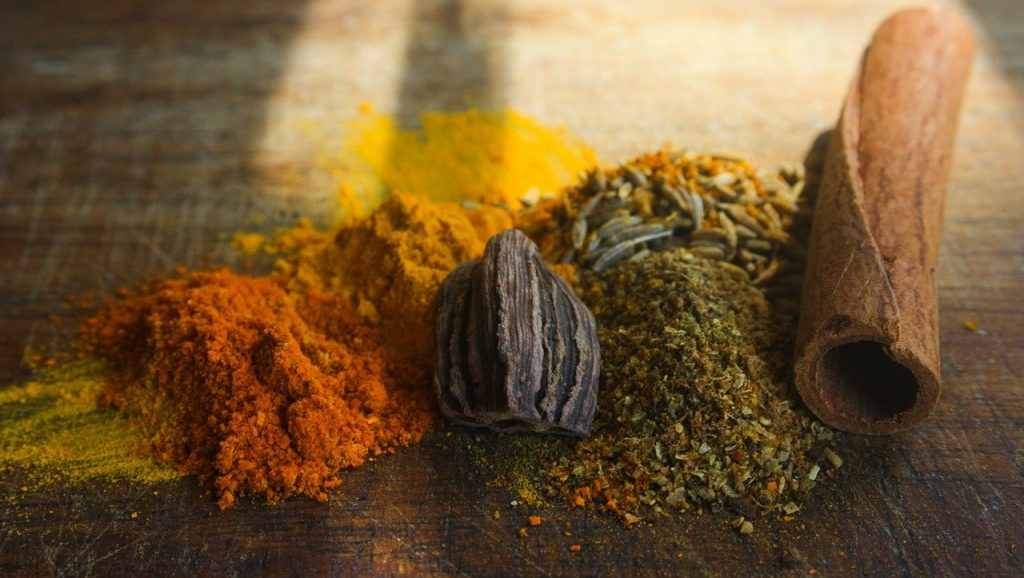
You can live without your gadgets, without the car, without any of the ‘wants’ that we surround ourselves with, but we cannot live without food. We are but a an accumulation of food (Anna-maya-kosha).
अन्नाद्वै प्रजाः प्रजायन्ते । याः काश्च पृथिवीं श्रिताः । अथो अन्नेनैव जीवन्ति । अथैनदपि यन्त्यन्ततः ।
from food life springs forth, by food, it is sustained, and in food it merges when departed.
We work so hard so that we can put food on our plate – hence the adage ‘this is my bread and butter’, and not ‘this is my iPhone and car EMI’.
Yet we treat eating like a task – something that has to be completed in between our busy lives. We don’t give it respect, we don’t even see it while gulping it down. No wonder it doesn’t work well for us – the rate of rise of eating disorders and obesity stands testimony to our soured (pun intended) relationship with a basic need of ours – eating.
This exercise will help bring back that lost relationship – at first, it may seem boring – after all, you have been used to watching or reading something when ‘completing this task’ – but after some time, you will begin to taste food better. Much better. When you give your food the attention it deserves, you will feel healthier too. After all, this food is what will go on to BECOME YOU. And as far as I know, YOU are important enough to take priority over a random news article, or a client email.
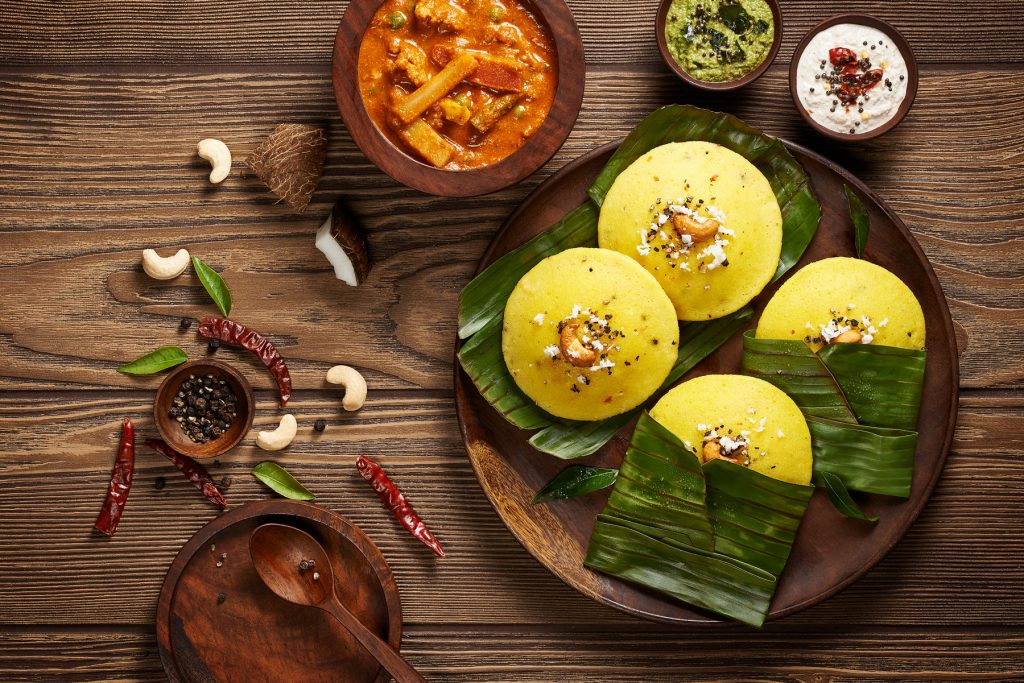
आहार शुद्धौ सत्त्व शुद्धिः
सत्त्व शुद्धौ ध्रुवा स्मृतिः
स्मृति लम्भे सर्व ग्रन्थीनांविप्र मोक्षः ||
āhāra-śuddhau sattva-śuddhiḥ
sattva-śuddhau dhruvāsmṛtiḥ
smṛtilambhe sarva-granthīnām vipramokṣaḥ
Chandogya Upanishad 7.26
If one eats pure food, one’s mind becomes pure. If the mind is pure, one’s memory becomes strong and steady. If the memory is good, one becomes free from all bondages.
Prayer before food (collective)
ॐ सहनाववतु।
सहनौभुनक्तु।
सहवीर्यंकरवावहै।
तेजस्विनावधीतमस्तुमाविद्विषावहै।
ॐ शान्ति शान्ति शान्तिः॥
Oṃ saha nāv avatu
saha nau bhunaktu
saha vīryaṃ karavāvahai
tejasvi nāv adhītam astu
mā vidviṣāvahai
Oṃ śāntiḥ śāntiḥ śāntiḥ||
Om, May we all be protected, may we all be nourished, may we work together with great energy, may our intellect be sharpened, let there be no animosity between us, Om, peace (in me), peace (in nature), peace (in the whole world).
